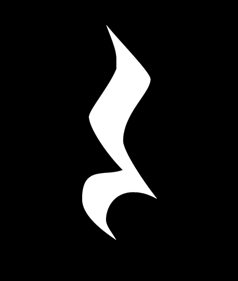If I Could Just See the Levee from My Backyard…
Anahi Molina
Photo Credit: Anahi Molina
I feel a severe lack of control at almost all times until I’m on the levee. Here I ride along the river, watching the water and its slight movements. From day to day I note how the river rises and falls. I look for trash at the water’s edge.
The city changes when I start biking everywhere. I find that old friends’ houses are not so far, that everything is practically fifteen minutes away. I find that I can get on my bike and be somewhere entirely new in moments. From the levee I watch the familiar parts of River Road pass under me, watch the little cars speed by while I slowly pedal. I pass a bar, our former haunt, a restaurant with my favorite mac n’ cheese in town. I pass the hospital, and on the levee there’s two people walking in scrubs. Their unmasked faces surprise me. They look like they could be on a date, laughing in the sun.
If I biked twelve instead of eight miles down I’d get to a friend’s family home. She can see the levee from her backyard. I think: I wish I could see the levee from my backyard. I think: I would be calm all the time, if I could just see that hill, get to the river in a few steps. This logic is flawed but I can’t get it out of my head.
Something about this small city has a grip on me, and it tugs whenever I think of going far for too long. On my bike just as on the levee I mirror its slowness; I peer into shotgun houses, I wave quietly at other bikers, and I stay within the small radius of everything.
My third time biking the levee, I miscalculate my ability to clear the train tracks. My front wheel catches perpendicular to the last metal track and I fly over my handlebars. I bite a hole clear through my face, just under my bottom lip.
A man sitting not twenty feet away watches me bleed on the gravel. He’s on the phone, and there’s a pandemic, so I don’t blame him for just watching. I wonder often what we’re losing or gaining because of the virus; how I wouldn’t have biked to the levee in the first place had I instead been at work, had there not been a mass tragedy. And how, if I had fallen at a time where there was no virus, maybe that man would have helped me instead.
Frustrating as closeness was before, I find myself now relishing in the memories I have of collectivity, of strangers pressed up against me and my friends, of shared drinks. I think of parade season, of the Fat Tuesday we spent on the river downtown, watching the water and drinking cheap champagne and smoking hand-rolled cigarettes from our British friend.
Nothing felt new about that day, about being drunk at 10am or watching the stream of parading people we half-knew walking by in extravagant costumes. Now it feels terribly old, like there will never again be an excuse to get drunk on a Tuesday morning, like I’ll never dance inches away from strangers’ and friends’ faces again.
I love and fear the narrowness of the asphalt path I bike on along the levee. If I don’t pay attention I could veer off, fall down the hill towards the water, or the other side towards the road. It flies beneath me and I think of my friends, of the couple in scrubs. I think of tumbling down the grassy hill. I tongue the wound inside my mouth, and think the grass seems so soft, the city so slow, that maybe I’d fall and wake up and everything could be old again.
Anahi Molina is a writer and preschool teacher based in New Orleans, Louisiana. Her work has appeared in The Millions, the New Orleans Review, and The Rumpus. She likes to cook and bike around town. @anahianabye.




